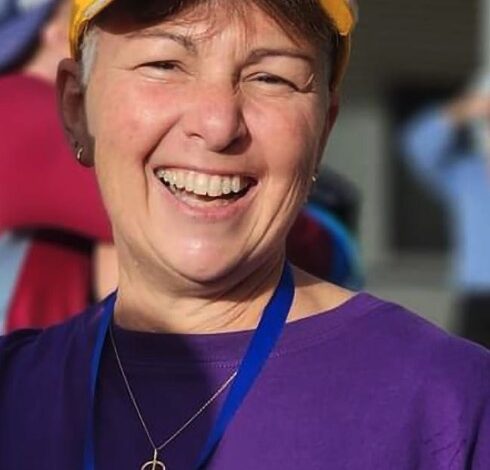‘Easy’ way to tackle world’s fasting growing disease

A stark message has been issued as experts push to tackle the world’s fastest-growing disease.
A new study that aims to understand the genetics of Parkinson’s has been held up by the need for 7,000 Australians without a family link to the disease to provide a saliva sample to “crack the code” on Parkinson’s.
The degenerative neurological condition impacts memory, thinking and movement and is the fastest-growing neurological condition in the world.
People with Parkinson’s are likely to also develop dementia, a brain condition that impacts memory, speech, thinking and behaviour.
Dementia is the second leading cause of death in Australia.
Kristine Maiorana was diagnosed with Parkinson’s when she was just 53 after she began to smell cigarette smoke all day and experience rigidity.
“My right side is all affected, so my right foot was curling – it was affecting my walk,” Maiorana said.
She said even simple tasks such as using a computer mouse were becoming difficult “because there was no power in (her) fingers to actually use the buttons”.
Diagnosed in June 2023, Maiorana said she went through a period of denial before she adapted to the condition.
“There’s so many different emotions that you go through with it all, and then it’s the comforting everyone around you,” she said.
“‘Devastating news’ – that was said to me many times.”
She said her days were filled with appointments to help manage the disease while working full time doing record management in government.
“They say Parkinson’s is a full-time job, and it is,” she said.
“I start work at 7, I finish at 3.30pm so that I can go to my pilates, my physio. I’ve got speech therapy, there’s a podiatrist, psychologist – it just seems like you’ve got to do these things after work hours.
“And if you don’t do them, that’s when you do fall into a heap.”
Maiorana said attending the Young Onset Support Group set up by Parkinson’s Queensland has been a big comfort through the whole process, allowing her to make “instrumental” friendships.
“You feel so alone at the time because you don’t realise – you think it’s only you,” she said.
“You don’t know what to do, how to think, you start going down ‘how am I going to survive?’”
“Just to have people around you that are the same age, same predicament, and know what they’ve done financially, mentally, what course they’ve taken, it helps so much.”

Another source of comfort has been her partner, Kim, who she met six months before she was diagnosed with Parkinson’s.
“I said to her ‘you can go now, you can leave, this isn’t for everybody and we don’t know what’s going to be down the path’, and she’s still here,” Maiorana said.
“She’s hung about and we’re a force to be reckoned with when we’re together, she’s the best thing that happened.”
Maiorana is taking Sifrol to treat her Parkinson’s, which she said seems to be working well for the time being.
“I’m in a really good place at the moment … I think I’m in control of my body,” she said.
However, Maiorana urged people to participate in the Australian Parkinson’s Genetics Study (APGS), which has already gathered samples from more than 10,000 people living with Parkinson’s but is in need of a “control group”.
“I think a lot of people don’t know about it until it’s there in front of them, then they think it’s a life-ending thing where it’s not,” she said.
“You live with it, you die with it.
“But if people can give saliva, it’s easy enough — you spit in a tube.”
The APGS is funded by Shake It Up Australia and The Michael J. Fox Foundation for Parkinson’s Research.
Understanding the genetics of the disease could help pave the way for new treatments and even a potential cure.
Shake It Up chief executive Vicki Miller said the study had already identified a new gene that researchers weren’t aware contributed to Parkinson’s.
“The healthy cohort part of the study is to give (researchers) reference groups to compare against, so it’s really, really important and valuable information for researchers,” Miller said.
She said the study was a great opportunity for people who had a loved one with Parkinson’s to get involved.
“(You) fill in a questionnaire, and they will send you a saliva test in the mail,” Miller said.
“You do the saliva test, post it back, and that’s all you have to do to participate in the study.”
Participants must be aged 45 and over and have no family connection to Parkinson’s.
People can register via the Shake It Up Australia website.




